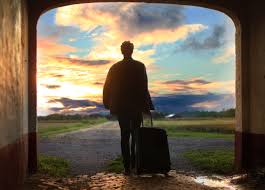The new relationship with Denmark (people who come from far away) and the shock it creates afterwards
It was on 7 January that the adventure began for many people from Denmark and abroad.
None of us really knew what to expect or what kind of people we were going to meet, but for most of us it was a great discovery.
Some of us had already lived outside our own country, but for others it was the first time they’d lived elsewhere.
The variety of backgrounds is one of odder Hosjekole’s strengths.
Most come from Denmark and Europe, while others come from much further afield, such as Australia, Japan and America.
That’s why we’re going to take a look at these people and why they chose to come to Denmark in a hojskole.
We’ll also look at the aftermath of the hojskole, because for some people it’s obvious to return home after months spent in Odder, but for others another voice has been created during this trip, friendships have been made during this semester and this can create a weird effect on their return. That’s why some students don’t necessarily want to go straight back home and prefer to visit other European countries or simply stay a little longer in Denmark.
First of all, going back to the main idea of a hojskole
Do you know what hojskole means?
I was able to ask Ingeborg, the head master of odder højskole, who kindly answered my questions.
Hosjkole was founded in the 19th century by Bishop Grundtvig, and is based on the principle of learning through dialogue and social interaction. They don’t award diplomas to build a career, but ‘it’s where you learn about life, to learn new skills, of course, but also to develop as part of a group, and to be creative on a daily basis. One person teaches another.
This place has enabled many internationals and Danes to learn a different way of life, but also to explore new subjects or improve their skills in areas such as journalism, film, and so on.
william, 19 , USA
EMILY, 19, AUSTRALIA
Simon, 18 , Argentina
Shohei , 27 , Japan
The “shock of returning home” or the feeling of depression that grips us after a long trip abroad
‘We talk about “return shock”, “reverse culture shock”’, theorises Barbara Vionnet, in an effort to describe the brutal feeling of being a stranger in your own country after a long trip or after having been an expatriate. She explains: “People who spend a long time abroad immerse themselves in a different culture, make new connections and change. So do those who stay behind, which can create a gap if the two do not evolve in the same direction”.
Barbara Vionnet is adamant that ‘you have to be as prepared as possible for the shock of returning home’. She suggests rediscovering your old surroundings with the same eyes you would have discovered an unknown place, or rather a familiar place that has become foreign, while avoiding all comparisons. ‘This will facilitate the readjustment,’ she says. Don’t hesitate to discuss the situation with those close to you, and with people who have been in the same situation who can be a real source of support. In any case, ‘the majority of people who suffer from reverse culture shock on their return end up leaving again’, concludes the specialist.



Follow us